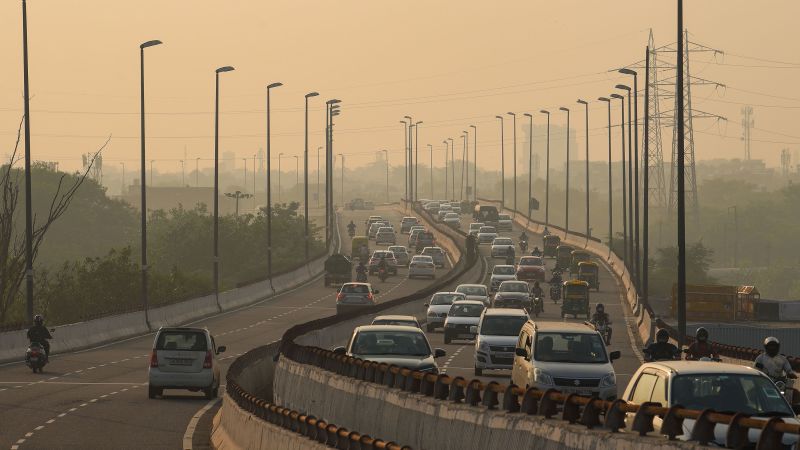Air pollution reached alarming levels worldwide in 2021, according to a report by IQAir. The report revealed that air pollution in every country, and in 97% of cities, exceeded the guidelines set by the World Health Organization (WHO) for maintaining healthy air quality. Only 222 cities out of over 6,000 analyzed met the WHO’s air quality standard. Unsurprisingly, countries like India, Pakistan, and Bangladesh had the highest levels of air pollution, surpassing the guidelines by at least 10 times. On the other hand, Scandinavian countries, Australia, Canada, Japan, and the United Kingdom were among the best performers, with air quality levels exceeding the guidelines by only 1 to 2 times.
Notably, three territories managed to meet the WHO guidelines: New Caledonia (a French territory), and the US territories of Puerto Rico and the US Virgin Islands. In the United States, air pollution was found to exceed the WHO guidelines by 2 to 3 times in 2021. The CEO of IQAir North America, Glory Dolphin Hammes, emphasized the urgent need for more stringent air quality standards and better foreign policies to combat air pollution.
The report by IQAir analyzed average annual air quality in more than 6,000 cities. It categorized the cities based on their air quality, with the best performers in blue (meeting the WHO PM2.5 guideline) and the worst in purple (exceeding the WHO PM2.5 guideline by over 10 times). The report is the first comprehensive global assessment based on the revised WHO guidelines, which were updated in September 2021. The new guidelines have reduced the allowed concentration of fine particulate matter (PM 2.5) from 10 to 5 micrograms per cubic meter.
PM 2.5 is a dangerous pollutant that can enter the bloodstream when inhaled. It is primarily emitted from burning fossil fuels, dust storms, and wildfires. It has been linked to various health issues, including asthma, cardiovascular diseases, and respiratory illnesses. In fact, millions of people die each year due to air pollution, with around 4.2 million premature deaths associated with PM 2.5 in 2016 alone.
According to the report, the United States experienced an increase in air pollution in 2021 compared to the previous year. Los Angeles remained the most polluted city, even though there was a 6% decrease in pollution levels. Atlanta and Minneapolis saw significant increases in pollution. Fossil fuel-powered transportation, energy production, and wildfires were identified as the main sources of pollution in the US, disproportionately impacting vulnerable communities.
Climate change-induced wildfires also played a significant role in reducing air quality in the US in 2021. Major fires, such as the Caldor and Dixie fires in California, and the Bootleg Fire in Oregon, contributed to hazardous air pollution, with smoke reaching the East Coast. However, China displayed improved air quality trends, with over half of the analyzed Chinese cities showing lower levels of pollution compared to the previous year. Beijing also continued its streak of improved air quality due to policy-driven actions targeting polluting industries.
The report also highlighted the concerning emissions from the Amazon Rainforest, which had been a vital defense against climate change. Deforestation and wildfires have not only threatened the rainforest ecosystem but also contributed to air pollution and climate change. The lack of monitoring stations in developing countries in Africa, South America, and the Middle East was a significant limitation, resulting in a lack of air quality data for those regions.
The report concluded with a call to action, urging the world to transition away from fossil fuels and move towards renewable energy sources. Taking such measures is not only crucial for combating global warming but also for improving air quality and public health. The IQAir report serves as a wake-up call, emphasizing the need for immediate and drastic action to reverse the adverse effects of air pollution and prevent irreversible damage.
Denial of responsibility! VigourTimes is an automatic aggregator of Global media. In each content, the hyperlink to the primary source is specified. All trademarks belong to their rightful owners, and all materials to their authors. For any complaint, please reach us at – [email protected]. We will take necessary action within 24 hours.


